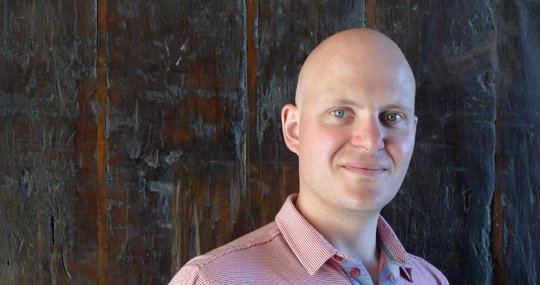Feeling a bit cynical about the run-up to Christmas? The constant battering of the eardrums with boughs of holly, the jingle of bells that makes the hair on your neck stand on end because it’s only November still? Alastair Gunn’s debut novel The Advent Killer should provide suitable distraction. While the rest of London is getting ready for Christmas, each week, a murderer takes down a victim in what seems to be a ritual all of his own. We invited the author of this thriller to take part in New Talent November, and asked him about his start in crime fiction…
What were you doing before you became a writer?
I’ve had a fair mixture of jobs in my life. I’ve worked as a retailer, an entrepreneur, a salesman, a manager, and a journalist. I didn’t plan it that way, but I think it’s been good preparation for being a writer. The more varied your experience, the more you discover about other people, which helps when you’re trying to create compelling situations and characters.
What made you decide to write crime fiction?
I’ve always enjoyed reading crime, but oddly, I didn’t start out wanting to write about it. I had a concept for a particular way to tell a story, which required the two main characters to be kept apart. It turned out the best way to do that was to make one a wanted criminal, and the other a police detective.
What do you think crime fiction lovers will enjoy about The Advent Killer?
Most of the books I enjoy reading have a relentlessness about them. Events and revelations come thick and fast, and I don’t want to leave the characters at the end of each scene, but then I remember I’m going back to another character whose thread I want to pick up again. That’s the best way to keep me engaged. I think The Advent Killer has that relentlessness.
The plot is fear-inducing – the fact that the murders are occurring in a sequence, at set times, and presumably for a reason. Tell us where the idea came from and how you developed it?
My killer creates fear by telling the public that somebody will die at the same time on the same day, week after week. Everybody knows it’s coming. What they don’t know is how or why he selects his victims, which means anyone could be next. I wanted the reader to experience the tension as each murder approaches, which is why I divided the book into specific days. You really feel each countdown.
Tell us more about DCI Antonia Hawkins. What sets her apart from other crime fiction cops?
Hawkins isn’t the finished article. She’s actually a bit out of her depth as seconded DCI. She makes plenty of mistakes, both in leading the investigation, and with the people on her team. Her frustration is obvious a lot of the time, but she won’t give up. I think readers will relate to that. It makes her more human.
How much violence and gore is there in your book, and what do you think is the best way to write about fictional killings?
I’m really careful not to let my writing revel in gore or violence. Crime fiction needs the extreme end of human depravity to keep the stakes high, but for me it’s more about the killer’s thought process. A tangible mixture of intent and insanity on their part, and imagining what they might be capable of, is much scarier than describing someone’s intestines.
Which other crime authors do you find inspiring, and why?
All of them, actually. Anyone who makes it through the mind-bending process of writing a crime novel and getting it published is worthy of my respect. If I had to pick someone, I really enjoy reading Frederick Forsyth. He tells a great story, but afterwards you realise you’ve also learned about the world.
How did you land your deal with Penguin and how does it feel to see your first novel in print?
My deal with Penguin was the result of eight years’ hard work. It’s a cliché, but I just decided not to take no for an answer. I’ve always loved writing, and I knew I had some talent for it, so I bought a few books on how to write a novel and get published, and just went for it. Every refusal (from agents or publishers) was an opportunity to learn or adjust. Seeing my first novel in print is amazing, but I certainly won’t stop there.
